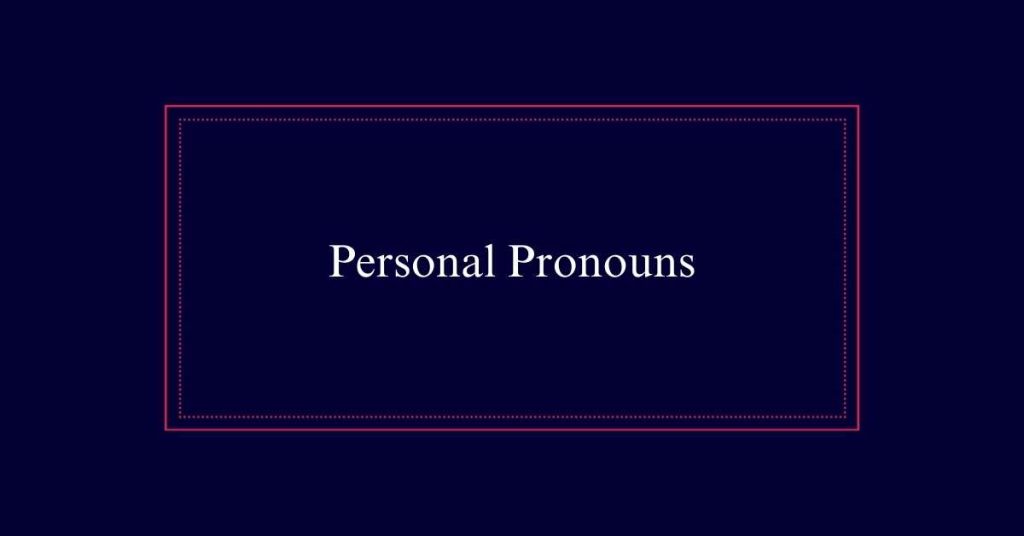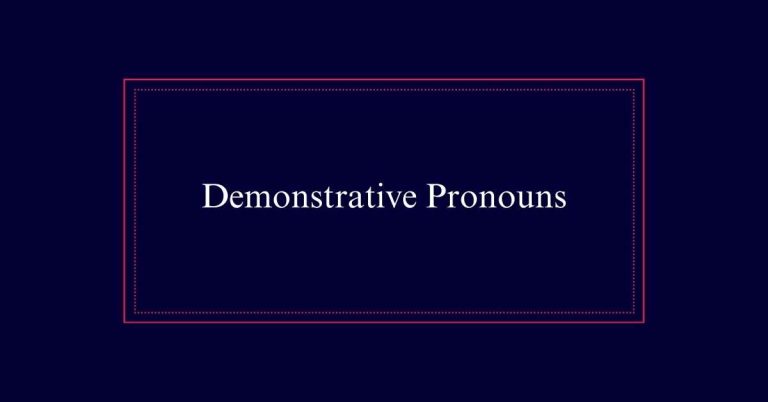Personal Pronouns
Personal pronouns, such as he, she, and they, replace nouns to avoid repetition. Their correct usage shows respect for individual identities and fosters an inclusive environment, impacting emotional well-being and communication clarity. The singular ‘they’ has been in use since 1375, reflecting English language flexibility.
Understanding Pronouns
Understanding pronouns is fundamental to mastering English grammar. Pronouns are words used to replace nouns in a sentence. They help avoid repetition and make sentences clearer.
Common personal pronouns include he, she, and they. Traditionally, he and she have been used for males and females, respectively. However, they is also used as a singular pronoun, especially when the person’s gender is unknown or non-binary. This usage of they has a long history, dating back to 1375.
Pronouns are not limited to she and he; they have evolved to include various forms that reflect diverse gender identities.

Importance of Correct Pronouns
Why are accurate pronouns so essential in our interactions?
Using the correct pronouns shows respect for individuals’ identities. It is a simple yet powerful way to affirm someone’s self-identity. Accurate pronouns can greatly impact someone’s emotional well-being. They help create an inclusive environment where everyone feels recognized and valued.
Misusing pronouns, even unintentionally, can cause distress and alienation. Correct pronoun usage also fosters clear and effective communication. It avoids confusion and guarantees that everyone feels acknowledged.
Pronouns and Respect
Respecting individuals’ pronouns is essential to acknowledging their identity and dignity. Using the correct pronouns goes beyond politeness; it validates a person’s self-perception. When we use someone’s chosen pronouns, we affirm their identity and show respect. This simple act fosters an inclusive environment where everyone feels recognized.
Misusing pronouns can cause distress and alienation. It can also undermine trust and communication. Hence, it is important to listen and adapt to the pronouns people use for themselves. If unsure, asking politely or offering your own pronouns can open respectful dialogue.
Pronouns and Safety
Acknowledging and using correct pronouns is not just about respect; it can also be a matter of safety for many individuals. Misusing pronouns can expose someone to discrimination, harassment, or violence. By using the right pronouns, we create safer environments for everyone.
Here are some reasons why correct pronoun usage is important for safety:
- Prevents Misidentification: Using the correct pronouns helps make sure that individuals are not mistakenly outed or misidentified.
- Reduces Social Anxiety: Proper pronoun use helps lessen stress and anxiety in social settings.
- Promotes Mental Health: Affirming identities through pronouns can enhance mental well-being.
- Fosters Inclusive Spaces: Respecting pronouns creates welcoming and inclusive environments.
Historical Use of Pronouns
The use of pronouns in English has a rich history that includes the singular they dating back to 1375. Pronouns have always been essential in the language, serving as substitutes for nouns to avoid repetition and guarantee clear communication.
Historical texts reveal that English speakers have used they as a gender-neutral pronoun for centuries. This usage was common in writing and speech, showing a long-standing recognition of the need for non-gendered language.
Choosing the Right Pronouns
Often, choosing the right pronouns involves simply asking and listening carefully. When meeting someone new, it is respectful to ask which pronouns they use. This shows consideration for their identity.
In ongoing interactions, if unsure, it is always appropriate to ask again. When someone shares their pronouns with you, use them consistently. This affirmation can greatly impact their well-being. If you make a mistake, acknowledge it, correct yourself, and move on.
Avoid asking about ‘preferred’ pronouns; instead, use the pronouns they provide. Remember, using the correct pronouns is essential for showing respect and fostering an inclusive environment. Always prioritize the pronouns given by the individual.
Introducing Your Pronouns
Introducing your pronouns can create a more inclusive and respectful environment. This practice helps everyone feel seen and valued.
Here are four ways to introduce your pronouns effectively:
- Include them in your email signature: Adding pronouns to your email signature is a subtle yet clear way to communicate them.
- State them during introductions: When meeting new people, simply say, ‘Hi, I’m [Name], and my pronouns are [pronouns].’
- Use them on name badges: At events or conferences, include your pronouns on your name badge.
- Incorporate them in social media profiles: Adding pronouns to your social media profiles normalizes the practice and shows support for others.






